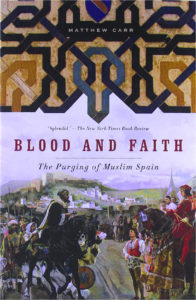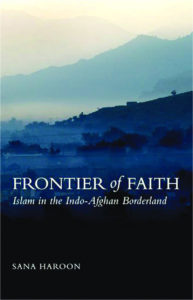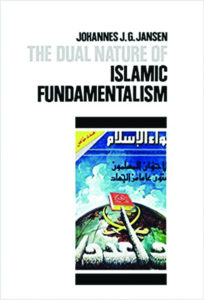

Blood and Faith: The Purging of Muslim Spain, 1492-1614
Matthew Carr
Hurst Publishers (2009)
In 1609, King Philip III signed an edict denouncing the Muslim inhabitants of Spain as heretics, traitors, and apostates. Later that year, the entireMuslim population was given three days to leave Spanish territory, on threat of death. In a brutal and traumatic exodus, entire families and communitieswere obliged to abandon homes and villages where they had lived for generations. By 1614 Muslim Spain had effectively ceased to exist. Blood and Faith is Matthew Carrs riveting chronicle of this virtually unknown episode, set against the vivid historical backdrop of the history of Muslim Spain.

Frontier of Faith: Islam in the Indo-Afghan Borderland
Sana Haroon
Hurst Publishers (2007)
Sana Haroon examines religious organisation and mobilisation in the North-West Frontier Tribal Areas, a non-administered region on the Indo-Afghan border. The Tribal Areas was defined topographically as a strategic zone of defence for British India, but also determined to be socially distinct and hence left outside the judicial, legislative and social institutions of greater colonial India. Conditions of Tribal Areas autonomy came to emphasise the role and importance of the mullahs operating in the region, and the mullahs jealously protected this administrative alienation. Despite its great distance from the centres of political organisation in India and Afghanistan, the frontier occasionally functioned as a military organisation ground for both Indian and Afghan anti-colonial activists until independence and partition of the Indian subcontinent in 1947. Thereafter the Tribal Areas maintained status as an administratively and socially autonomous region in both the Afghan and Pakistani national imaginations and cartographic descriptions. The regional mullas continued to contribute to armed mobilisations of national importance in Pakistan and in Afghanistan over the next half century, in return for which nationalist actors supported the mullahs and their personal interest in regional autonomy. This was the hinterland of successive, contradictory jihads in support of Pakhtun ethnicism, anti-colonial nationalism, Pakistani territorialism, religious revivalism, Afghan anti-Soviet resistance, and anti-Americanism. Only the claim to autonomy persisted unchanged and uncompromised, and within that claim the functional role of religious leaders as social moderators and ideological guides was preserved. From outside, patrons recognised and supported that claim, reliant in their own ways on the possibilities the autonomous Tribal Areas and its mullahs afforded.

The Dual Nature of Islamic Fundamentalism
Johannes Jansen
NCROL (1997)
Fundamentalism fuses religion and politics, and in this compelling book Johannes J. G. Jansen describes and analyzes from original Arabic sources the Islamic incarnation of such a fusion. He offers comparisons with millenarian and revivalist movements in other religious traditions to suggest a basic structural similarity in fundamentalism of different creeds. Fundamentalism rejects a core belief of modernity―the separation of religion and politics―and so, according to Jansen, always has an antimodern or reactionary basis.
To explore the logic of contemporary fundamentalist ideology, Jansen draws on the work of the two dominant Islamic commentators on religion and politics, Al-Afghani from the nineteenth century and Ibn Taymiyya from the fourteenth. He examines the theological bases of Muslim militancy, and in particular the justification of violent political action, in the more recent writings of Sayyid Qutb. Further chapters discuss the execution of Shukri Mustafa in Cairo in 1978, in an unsuccessful attempt by the Egyptian authorities to intimidate the fundamentalists; inventory antifundamentlist arguments within contemporary Islam; and examine fundamentalist attitudes toward other Peoples of the Book, particularly Jews, and toward women as political agents. Jansen concludes with an analysis of various attempts within Arab political culture to deal with Islamic fundamentalism.

